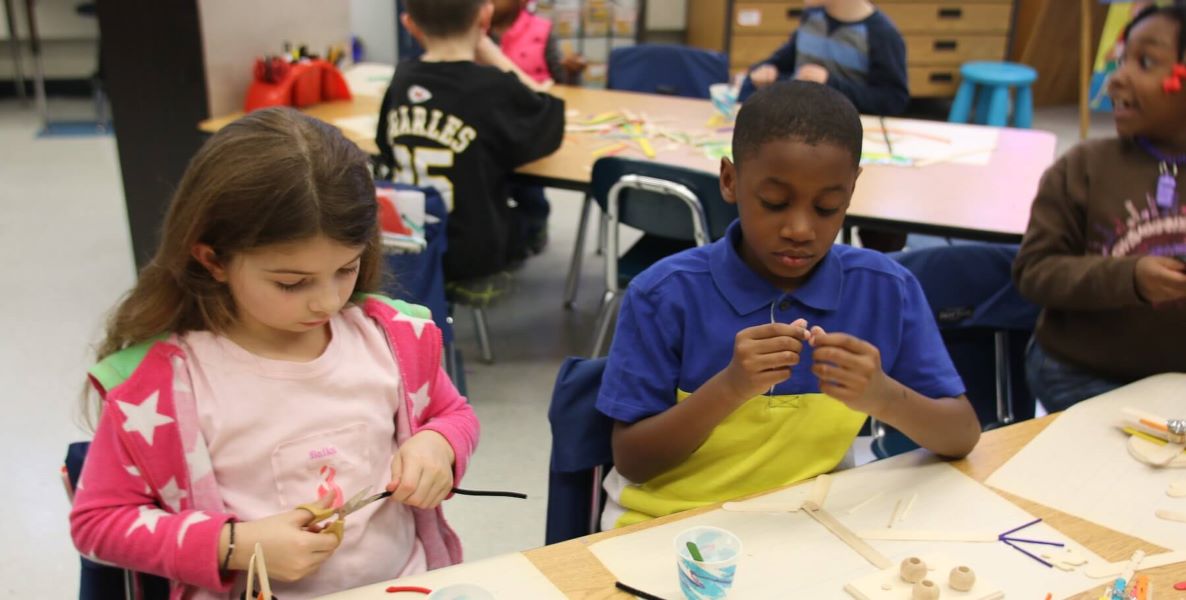School’s in session. For Philadelphia families with students — and anyone who cares about kids, education, and safety — there’s plenty of help needed. Our city’s seemingly endless public education crises, exacerbated by poor building conditions, a lack of materials, and, moreover, a lack of teachers, bus drivers, and support staff means our kids need … you.
Straight from the education frontlines, tips on the most meaningful ways to help Philly schools, right now.
How to help Philly schools, teachers, students and their families — now
1. REACH OUT TO JUST ONE SCHOOL
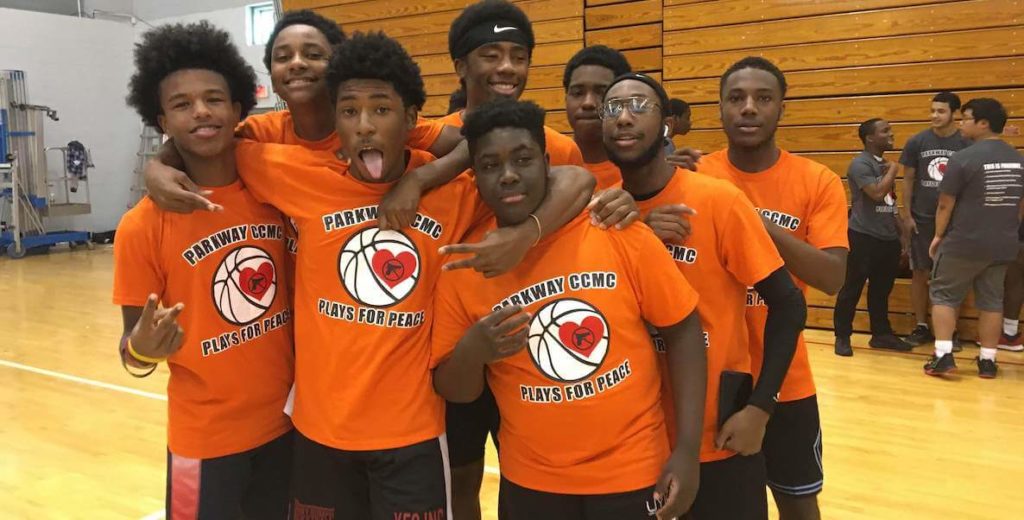
Want to make a big impact in a personal way? Give a call to your neighborhood school, kids’ school, alma mater, or any individual school you feel a connection to, and ask what needs they have and how you can help. You can find email addresses for individual school leaders through the Philadelphia School District website. But, really, the folks who answer the phones will know exactly where to send you. (Pro tip: Many even pick up over the summer.)
Questions to ask: Do they have a clothes closet and accept new or secondhand uniform clothes and outerwear — and, if so, what kinds and colors? Do their teachers keep wish lists? Are there any special programs — music, art, gym, sports — that could use specialized equipment or supplies? Does the school have any service needs, like gardening, grant writing, accounting, fundraising or field trip scouting? Is there a school family that you could help anonymously?
The Fund for the School District of Philadelphia has a Philly FUNDamentals program where individual schools post the things they need. Contact the District here.
2. GET KIDS READING
The National Center of Education reported in 2022 (the most recent year available) that 22 percent of Philadelphia adults lack basic reading skills — and less than 20 percent of 4th graders meet literacy benchmarks. To this end, myriad local organizations are determined to help children learn to read and write.
One of the biggest is Read by 4th, a Free Library of Philadelphia Foundation– based group of early literacy advocates, organizations and workers seeking to get Philadelphia children to 100 percent literacy by … fourth grade.
Pre-K through grade three program Read to Succeed, endorsed by the Fund for the School District of Philadelphia, is seeking monetary donations and volunteer community readers.
The City’s Office of Children and Families seeks volunteer reading coaches for its Philly Reading Coaches program. Mighty Writers, with locations throughout Philly and in Chester Co. and NJ, recruits volunteers as writing mentors and tutors.
The Center for Black Educator Development is looking for high school and college students who want to develop skills as aspiring teachers, and impact the literacy rates of rising first through third graders in our communities. Sign up and learn more here.
Kensington’s Beyond Literacy helps whole families — including adults — learn to read and improve reading, and could use volunteers.
3. PROVIDE MENTAL HEALTH SUPPORT
Here in Philadelphia, the nation’s poorest big city, where violence our students, need and deserve mental health services now more than ever. Make sure you and your neighbors know about the free mental health services available locally, including through the District’s online mental health resources.
Gun violence across the city and country has also created an already urgent emotional crisis for Philadelphia students. As the District works to increase climate support services to help students experiencing trauma, speak to your children. Make sure your kids’ schools are speaking to their students — about school shootings and gun violence in general.
Kids should know that they can share tips anonymously, without fear, thanks to PA’s Safe2Say Something Anonymous Reporting System. Important too: Stay informed yourself.
4. SUPPORT INDIVIDUAL TEACHERS
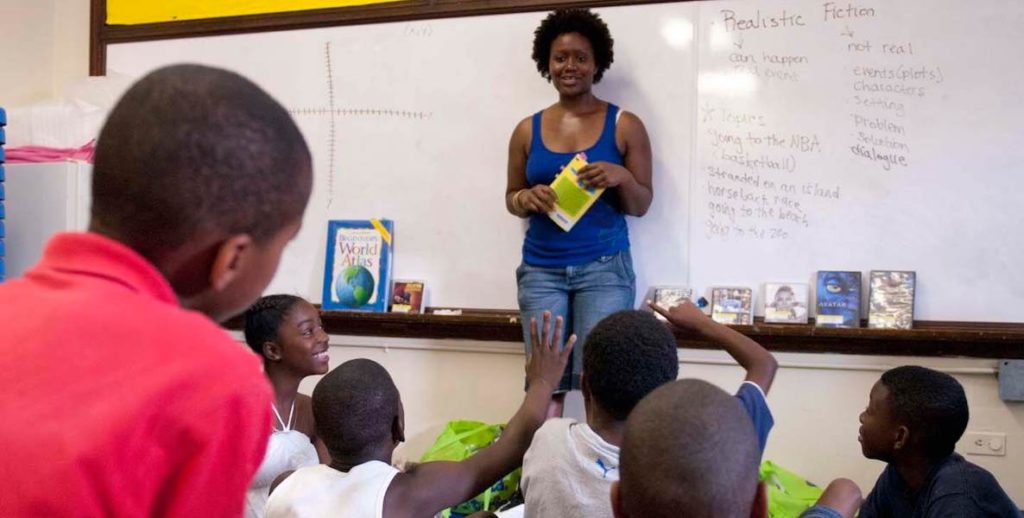
Educators around the country are continuing to post their specific classroom needs online at Donors Choose. You can find local teachers’ requests here.
5. EMPLOY TEENS
Philadelphia Youth Network is committed to working with the School District to provide students with virtual employment and shadowing opportunities. Go here to donate money, to offer opportunities, or, if you’re a student, to apply for work.
Know a young person who needs a job? (Or have a job to post?) Follow @philly.teenjobs on Instagram.
6. SUPPORT THE FREE LIBRARY OF PHILADELPHIA
Mayor Kenney’s anti-violence strategy includes a much-needed $10.4 million funding bump for the Free Library of Philadelphia. Each of our 54 libraries is an essential resource for Philly students, not just for books, research and technology, but also as a safe place to be when school is out. With more funding, the Library could hire more staff and expand their hours.
The Free Library could also use volunteers. They update their list of volunteer opportunities here.
7. ADVOCATE FOR SAFER BUILDINGS
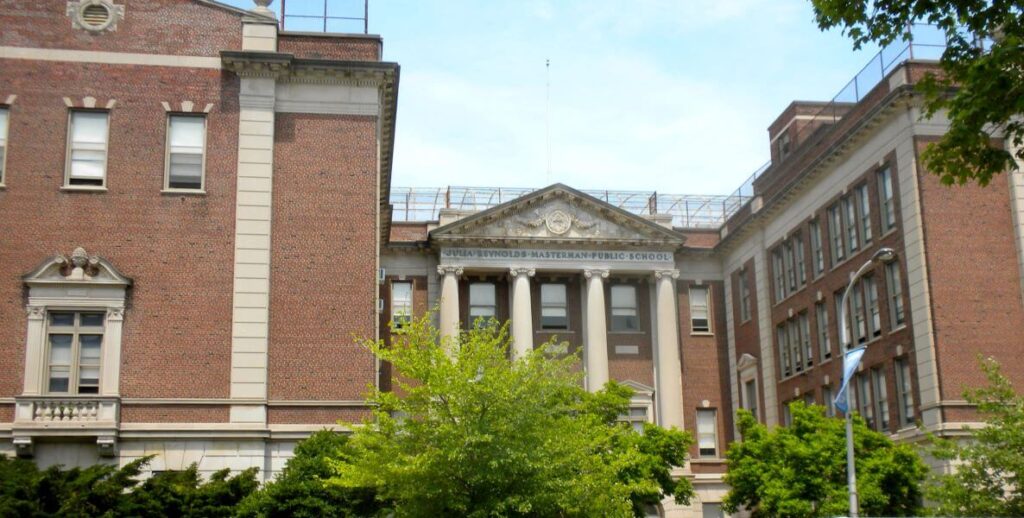
Philadelphia’s educational facilities have long been plagued with environmental crises that displace and disrupt the academic year and jeopardize public health. Although the District and City reached a settlement agreement over building inspection and management, the fight is not over.
Advocate for better learning conditions for our kids by joining PHSI, Philly Healthy Schools Initiative.
Have a concern about a school’s physical environment? Contact PA’s Office of Safe Schools Advocates.
8. TELL TEENS TO VOTE!

The best way for young people to ensure our elected officials are listening to their educational needs? By casting a ballot.
Vote That Jawn, the local grassroots initiative spearheaded by author / playwright / Penn professor Lorene Cary and a team of students, is determined to get 10,000 first-time voters to register and vote in 2020. Show them how easy it is as VoteThatJawn.com.
9. DONATE UNIFORMS AND SCHOOL SUPPLIES
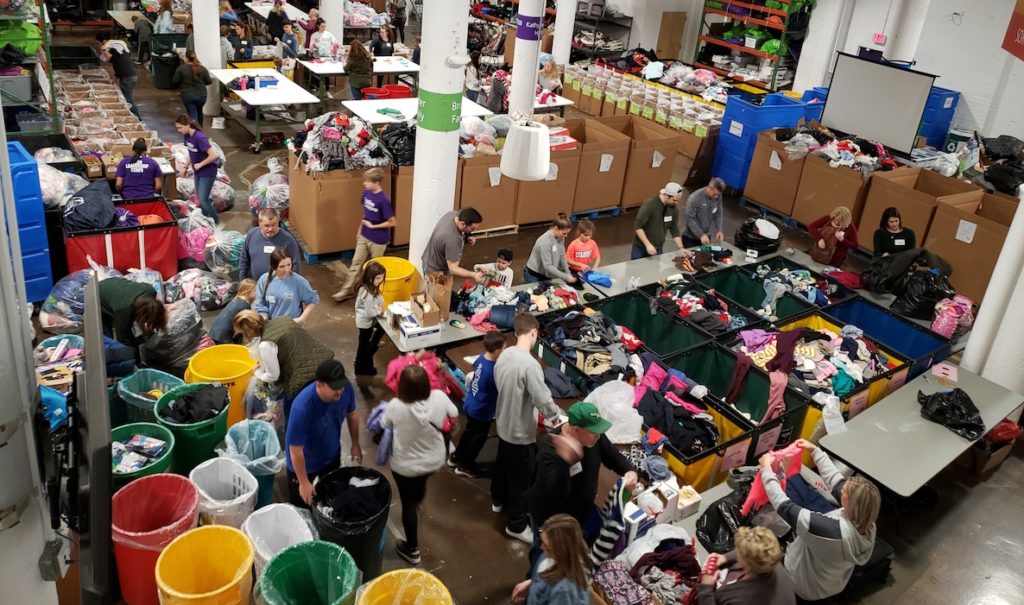
The Philadelphia School District mandates uniforms for all students in grades K-12. School uniforms are an attempt to level the playing field and limit distraction. However, if a student fails to abide by the schools’ dress code, they may be subject to disciplinary actions. You can help every student have access to clean and appropriate uniforms.
Cradles to Crayons collects donations of everything from uniforms to school supplies for ages zero to 12. The Philly-born organization also offers a kid-friendly volunteer environment: Families can help out at the warehouse, by sorting, packing, and quality checking donations.
Many schools have their own clothing closets. (Again, it’s a best-case-scenario if you can target one school to help out.) Parochial schools often do the same. Fox Chase’s Saint Cecilia School, for example hosts an annual uniform exchange.
10. SHARE YOUR SKILLS
Many teachers would welcome parents or community members to share their passions and skills with (virtual) classrooms.
Are you a scientist who can make a guest appearance to spice up a high school chem class? A musician who can drop into virtual band rehearsal? A Philly-phile who can teach a fourth grade history lesson on the region? Raise your hand — teachers — and students—will thank you.
11. PAY ATTENTION TO PARA EDUCATORS
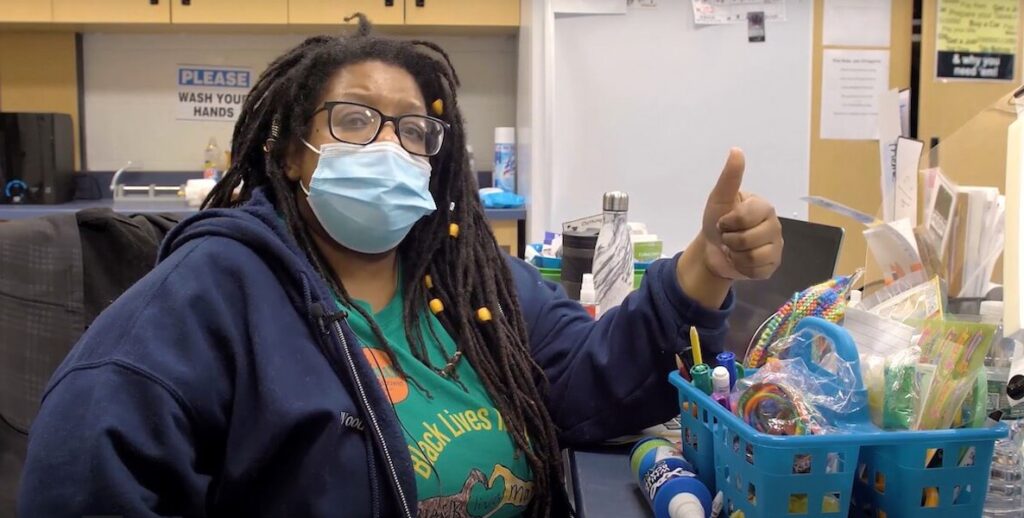
The School District of Philadelphia employs 2,500 para educators, who are in schools to support our most vulnerable students — like immigrants, those with special needs and those for whom English is a second language.
Philly welcomes “paras,” as they’re known, into the Teachers Union, and they do have contracts — but their pay is dismal. They start at $15,000 a year, and max out at $30,000.
Citizen 2021 Integrity Icon Leah Wood, a teacher at Feltonville School of Arts and Sciences, leads the local grassroots Para Power initiative and says that many paras work second and third jobs, and struggle to pay their bills or support their families. Para Power has started a relief fund to help support paras in need, and welcomes more voices calling on City Council and the School District for higher wages, more professional development, and more tech support (many paras are currently using Google Classroom on their phones, because they don’t have access to a laptop).
12. FEED HUNGRY STUDENTS
Through summer, during school breaks — and even after school — the situation worsens for students who rely on the free breakfasts and lunches that all Philly public and charter schools provide. Think about donating to Philabundance, or just calling your local school to see how you might best help these kids get through their days off.
To help Philadelphia kids and their families access healthy foods, check out our guide to fighting food insecurity. A great resource for helping with food access to alleviate hunger: Healthy Minds Philly.
13. MAKE WI-FI UNIVERSAL
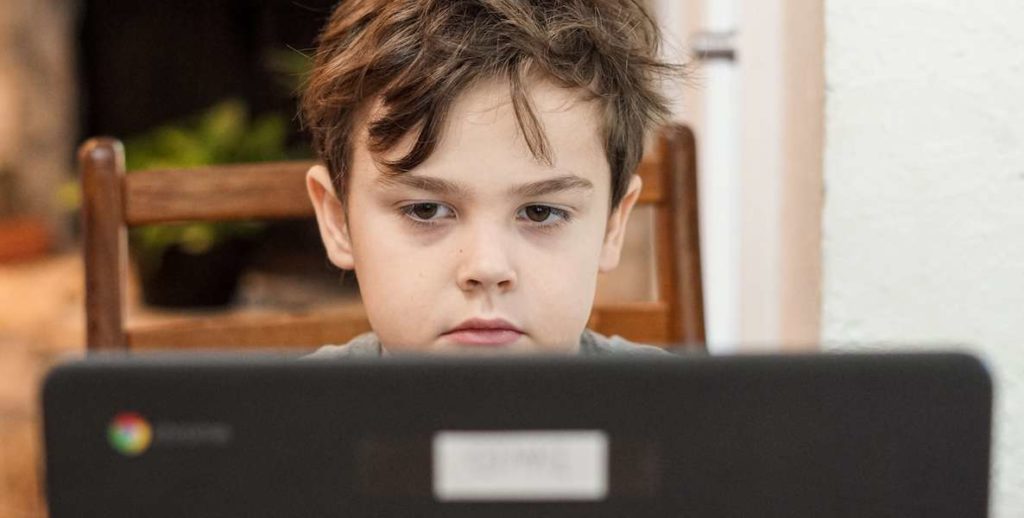
Since Covid, school-provided laptops have become an essential part of student life. Connectivity is a lifeline.
“This is a civil rights issue,” says Scott Gordon, former CEO of Mastery Charter Schools. “We have a systemic, structural barrier for thousands of children to access education. This is an opportunity to fundamentally disrupt the inequity that occurs every day and is only being further highlighted by the pandemic.”
You can donate directly to The Fund for tech, and donate to Mastery Charter Schools here.
Know a child in need of a computer or home internet connection? While school should be their first source, and libraries and rec centers are great options, when available, the City’s PHLConnectEd can help. Philadelphia Children’s Foundation also gives families computers.
14. SPEAK UP
Attend Philadelphia School Board meetings in person or virtually. Before you go, if you have something to say, be sure to register to speak at a meeting.
Keep up to date about the Philly School Experience Survey you may or may not have taken, here.
![]()
MORE HOW TO HELP RESOURCES FROM THE CITIZEN
Kingsley Elementary School 2016, Photo by Skokie Northshore Sculpture Park via Flickr


